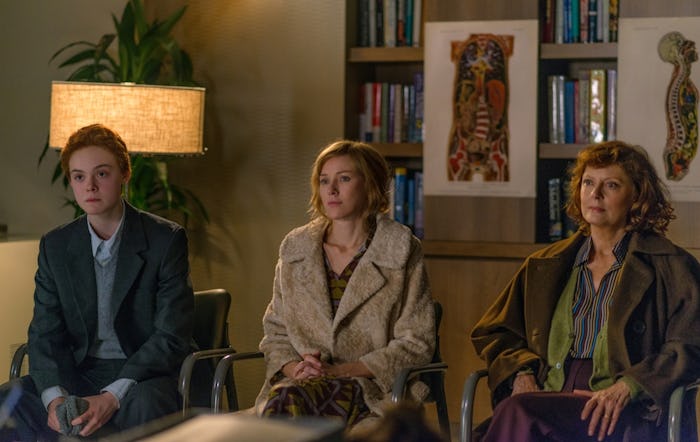Entertainment

This Mother-Daughter Break-Up In '3 Generations' Is Too Real
With the current political climate challenging transgender individuals' protection in the eye of the federal law, certain stories feel important now more than ever to put out there for audiences to consume, and ultimately, learn from. It is a conversation that spans generations, and is a topic that needs to be discussed by the young and the old. This type of conversation is spotlighted in the new film 3 Generations, out May 5. The film, starring Elle Fanning, Naomi Watts, and Susan Sarandon as the "three generations," revolves around one family responding to a life-altering change as teen Ray (Elle Fanning) embarks on hormone replacement therapy after years of identifying as a male.
In an exclusive clip below, Ray's mother Maggie (Naomi Watts) is told by her own mother, Dolly (played by Susan Sarandon), that it is time to move out of their shared home, after years of living under the same roof. The decision is timed to Ray's plan to start the next school year at a public school, relieving Maggie of "artsy farsty" tuition for the private school Ray currently is attending, and allowing her to find a place for just her and Ray. As seen in the clip below, the discussion doesn't really land well with Maggie.
In the film, Ray is a teenager anxiously awaiting his hormone replacement therapy to begin after years of struggling with his assigned gender at birth. Ray has been living as a boy for some time, but at the start of the movie, he is on the cusp of starting T (testosterone), which will allow him to shed the secondary sex characteristics of his assigned gender and gain those that match with his identity. To start the next step in the gender-confirmation process, though, Ray must have both parents' consent — which becomes a problem, as Ray's father (Tate Donovan) is out of the picture.
The film's approach to the impact and understanding of an entire family, from teen to grandparent, shows how important these conversations are for families to have, whether it is directly impacting them or not. The more we normalize trans narratives, the less likely it is for these stories to be ignored.